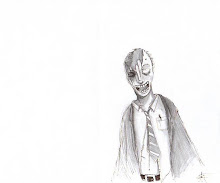
Strange really. I mentioned this thought to some folks at Creative Time recently while they were shoving ice cream cake in their mouths for my birthday lunch, and well, they seemed not at all interested in the profundity of this idea. What if, in fact, all these thoughts I think are so compelling are in fact, old hat for most. What if, I am simply fascinated by ideas that most people find rather common place? While it may certainly be true, this would mean that I possess a vastly inaccurate perception of the order of things. Nonetheless, to the thought.
So, evolution. Whatever survives, survives. Whatever dies, dies. This process moving across genetic, cultural, geographic, climatic and numerous other conditions forces a sort of logic that tells a kind of story of survival. This story of survival can in fact be told either through an evaluation of how those conditions have appeared in a certain body or conversely how the body gives testament to the history of these conditions. Of course, most of the time that the story of evolution is told, we tell it from a certain perverse tautalogy that takes what is given as inevitable. For example, one can say that a butterfly is a certain color because its bright color makes most predators think it is poisonous. It might lead one to think that the butterfly mutated for this purpose of survival but that is inaccurate. It was just that the brighter colored butterflies over time tended to survive more. That is to say, it is the process of death and procreation over time that produces this process called evolution.
Now, this example we follow because we can see, with our eyes, the color on the butterfly and thus gauge its mutations over time. We can follow in the historic record how various mutations over time have visibly shown up on the body of a butterfly. Through this record we are able to deduce not only something about the butterfly but also about its predators. The body of the butterfly becomes a record of conditions of survival over time.
So what about forms of survival we do not yet understand? Certainly we must admit a great humility in our ability to understand the world around us. Certainly many empirical phenomena remain yet to be detected. That is to say, there are things that are affecting us that we still do not understand nor furthermore know about. Wouldn't it stand to reason that those phenomena that we have yet to understand or maybe, have a limited understanding of such as time itself, nonetheless produce a certain historic record in the genetic and bodily record? We are not only evolving in ways we know, but ultimately, in ways we do not understand. It is this strange thought that I find deeply interesting and exciting that nonetheless failed to impress my Creative Time cohorts as we ate delicious chocolate ice cream cake.






2 comments:
Ace of Beaks.
Dear Mr. Thompson,
Thank you.
This is exactly right and it is amazing how many people seem underwhelmed by it. I think that's because they don't really understand it.
Please bear with the following example.
Corn root worms love corn plant roots. They will starve to death rather than eat things that members of the species used to like just fine - grass, for example - before corn was so ubiquitous. This is a problem for corn farmers (despite the plentiful gov't subsidies, but that's another story). Solution: crop rotation. Result: Corn root worm adults "figured out" they should lay their eggs in soy fields.
Of course, they didn't "figure out" any such thing. Some of 'em were doin' that anyway and those larvae lucked out, finally.
We humans seem to love a good story and we love moving forward in linear time and then looking back and gazing at that nice, neat, straight line. It seems to comfort us. I wonder how that trait evolved?
But I'm pretty sure there is no big "why". Ahhh, the indifference of nature: now, that's a comfort!
Post a Comment